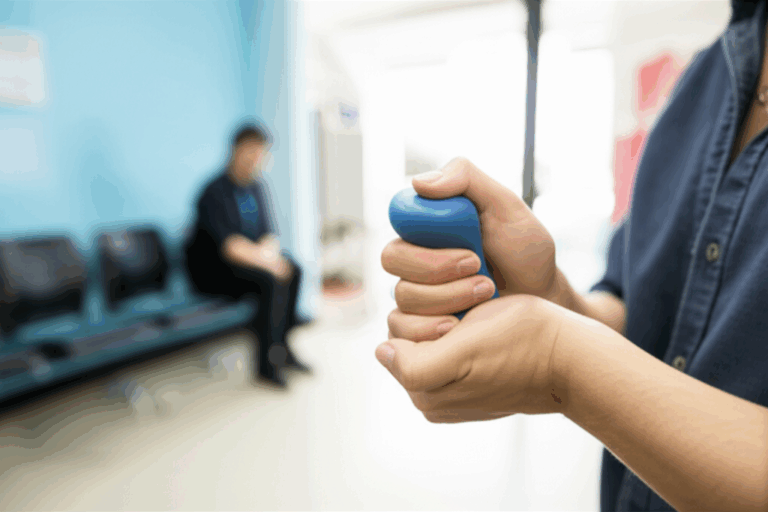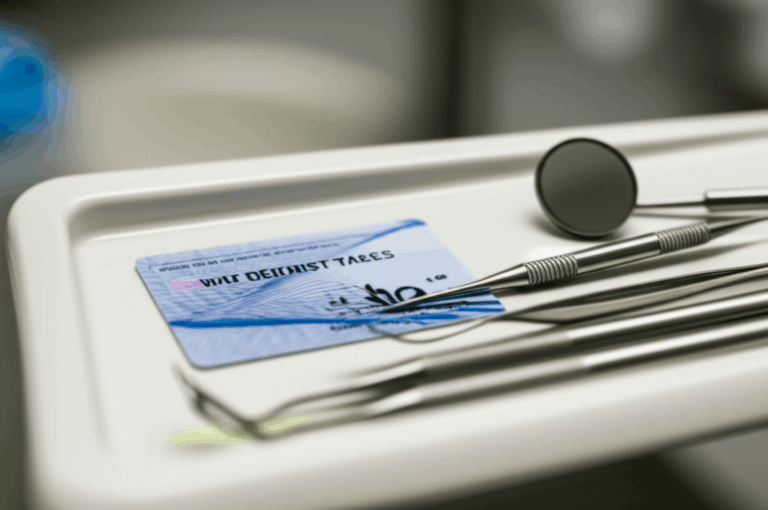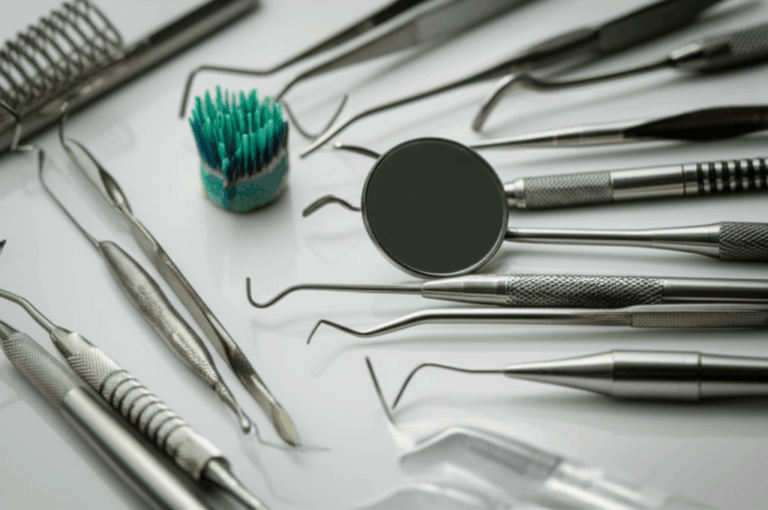
What Do Dentists Do? A Comprehensive Guide to Their Roles and Responsibilities
Understanding what dentists really do can help keep your smile bright and your body healthy. In this guide, you’ll find out how dentists protect your health, what happens at a dental office, and why good dental care matters for everyone. Read on if you want to know how dentists help, what they check for, and how they fix or even make brand-new teeth!
Table of Contents
1. Introduction: Dentists—Your Partner in Oral Health
Let me ask you—do you feel a little worried when you think about visiting the dentist? A lot of people do! But here’s the good news: dentists do way more than just “fix teeth.” They help take care of your whole smile and watch over your health. Whether they’re making sure you don’t have any holes in your teeth or catching small problems early, their job affects your whole body.
I remember my very first dental visit as a kid. The dentist smiled, showed me every tool, and even let me hold the little mirror. By the end, I learned dentists aren’t scary at all—they’re just there to help you feel comfortable and healthy.
2. What Is a Dentist?
A dentist is a health worker trained to keep your mouth, teeth, and gums in good shape. Most dentists are called general dentists. They help with check-ups, cleanings, fixing broken or missing teeth, and showing people how to keep their mouth clean.
Dentists work with a team, too. They have dental hygienists, dental assistants, and sometimes work with outside helpers like digital dental labs to make tooth models or crowns.
Dentists might also work with other tooth experts, like orthodontists (who straighten teeth), periodontists (who look after your gums), and oral surgeons (who do surgeries in the mouth or jaw).
3. Why Are Regular Dental Visits Important?
Have you ever thought about why a dentist asks you to come back every 6 months? It’s not just a habit. Studies have found that over half of adults have gum problems, and almost everyone gets a cavity sometime. When you see the dentist often, they can find small problems like tooth decay or gum disease before they get worse.
But it’s even more than that. Your mouth can give clues about the rest of your body. Sometimes, dentists notice big problems like oral cancer or signs of illnesses such as diabetes before you even know you have them.
Seeing your dentist is important for kids, too. Early visits help make good habits, stop cavities, and help children grow up with strong teeth and bright smiles.
4. What Happens During a Dental Checkup?
Let’s look at what really happens when you sit in that big chair at the dental office. A normal checkup usually means:
- Looking at your teeth and gums: The dentist checks each tooth and your gums for signs of cavities, gum problems, or anything else.
- Professional cleaning: Dental hygienists use special tools to get rid of plaque and tartar that brushing and flossing can’t reach. They may also shine your teeth up.
- X-rays: Sometimes, dentists use dental X-rays to see spots they can’t see just by looking, like between teeth or under the gums.
- Oral cancer check: A quick, gentle look around your mouth, tongue, and throat for anything odd.
- Advice: Your dentist or hygienist gives you tips about brushing, flossing, and what foods will help your teeth stay healthy.
At the end, your dentist talks to you about what they found, answers any questions, and helps you make a plan to keep your mouth healthy.
5. How Do Dentists Prevent Dental Problems?
Dentists think stopping a problem before it starts is way better than having to fix it later. That’s why preventive dental care is a big part of every dental visit. Here’s what that looks like:
- Fluoride treatments: These make your teeth harder and help stop decay.
- Dental sealants: A thin, safe layer that goes on the back teeth to keep out germs and food.
- Regular cleanings: These get rid of sticky plaque and tough tartar that can cause trouble.
- Teeth cleanings: Help stop you from getting holes in your teeth and bad breath.
- Advice: Dentists and dental hygienists like showing kids and adults the best way to brush, floss, and pick snacks that are good for teeth.
A quick story—I once helped a boy named Andy who didn’t like brushing. After we cleaned his teeth, we gave him a fun brushing chart and showed him a plastic tooth model to explain cavities. In two months, his mom said he became the best brusher in the family!
6. What Are the Main Types of Dental Procedures?
What if you do get a cavity, or break a tooth eating popcorn? Dentists do much more than just check your teeth. Here’s a list of some common dental fixes:
- Fillings: Dentists fill in holes (cavities) in teeth with safe stuff.
- Crowns and bridges: These cover or fix teeth that are weak or broken or replace missing teeth. Sometimes, a crown and bridge lab makes these to fit just right.
- Root canals: This treatment helps a very sick tooth so you can keep it.
- Tooth pulling: If a tooth is really hurt, sometimes it’s best to pull it out, like with wisdom teeth.
- Dentures and partials: If you lose teeth, dentists fit you for dentures (fake teeth you can take out). Removable denture labs make these so they fit just right.
- Cosmetic dentistry: This means things like whitening, veneers for teeth that are chipped or stained, and even braces or clear trays to help make a nice smile.
Dentists always try new ways to help, like using strong tooth material, zirconia, and even 3D printers to make parts that look and feel real.
7. When Do You Need a Dental Specialist?
Most times, you’ll see a general dentist first. But sometimes, you may need a specialist. Here are a few types and when you may need them:
- Orthodontist: Straightens teeth with braces or see-through aligners.
- Periodontist: Fixes tough gum problems and puts in dental implants.
- Endodontist: Takes care of problems deep inside the tooth with hard root canal work.
- Oral surgeon: Handles tough tooth pulls, jaw surgery, or fixes after injuries.
- Pediatric dentist: Takes care of kids’ teeth from baby to teen years.
- Prosthodontist: Helps people get new teeth with crowns, bridges, or dentures.
Your dentist might suggest a specialist if you have very crooked teeth, big infections, or need surgery. Some offices work closely with labs like an implant dental laboratory to make sure your treatment goes well.
8. What Does a Dentist’s Day Look Like?
Dentists are busy, but they do more than just fix teeth. A regular day can include:
- Seeing patients: From checkups and cleanings to emergency toothaches or broken teeth.
- Teaching patients: Dentists explain what they find, how to avoid problems, and answer questions.
- Teamwork: Dentists work with hygienists, helpers, and sometimes outside labs, such as a china dental lab, to make sure every person gets the best care.
- Running the office: Dentists often lead the team, plan the schedule, look at bills, and do paperwork.
- Learning more: Many dentists go to classes to learn about new tools, new ways to treat teeth, or new materials.
Dentists really care about making their offices safe, friendly, and welcoming, especially for kids or anyone who’s nervous.
9. How Do Dentists Keep Their Office Safe and Clean?
Keeping the dental office safe is super important. Here’s how dentists make sure every visit is clean and safe:
- Sterilizing tools: Every tool is cleaned between uses, usually with special machines.
- Wearing safety gear: Dentists and staff wear gloves, masks, and sometimes face shields.
- Wiping down surfaces: Dental chairs, counters, and even doorknobs get cleaned many times each day.
- Careful use of X-rays and chemicals: All materials are stored and used carefully.
- Writing things down: Dentists keep notes about your visit, your treatments, and anything special to keep you safe.
All these steps help you relax, knowing you’re safe at every visit.
10. How Are Dentists Trained?
Becoming a dentist takes a lot of time and practice. Here’s how someone becomes your dentist:
Dentists are proud of their training and spend their whole careers learning to help people better.
11. How Dentists Improve Your Whole Body Health
You might not know it, but having a healthy mouth helps your whole body. Scientists have found that bad mouth health can be linked to problems like heart disease, diabetes, and even pregnancy troubles. Germs from gum disease can travel in your blood and hurt your heart or other organs.
Dentists help by treating gum disease, teaching good habits, and noticing health problems early—sometimes before a regular doctor does.
Taking care of oral infections, gum disease, and oral cancer keeps you healthier overall. Dentists really are your partner in staying well.
12. Common Questions About Dentists (FAQ)
Q: Are dental X-rays safe for kids?
A: Yes! Dentists use very little radiation, cover you with a safe jacket, and only do X-rays when needed.
Q: What’s the best way to stop cavities at home?
A: Brush two times a day, floss, eat healthy, and visit your dentist regularly!
Q: Why do dentists like fluoride?
A: Fluoride makes your teeth stronger and helps stop decay.
Q: What if I’m scared of the dentist?
A: Tell your dentist! They can walk you through each step, use gentle numbing, or talk about ways to help you feel calm.
Q: Can adults get braces, too?
A: Yes! Orthodontists help people of any age make their smile straighter and fix their bite.
13. Key Takeaways
- Dentists do more than fix teeth. They take care of your whole mouth and help your body stay healthy.
- Good dentists find problems early, so fixing them is easier and cheaper.
- Check-ups include exams, cleanings, X-rays, and tips about taking care of your teeth.
- Common treatments include fillings, crowns, root canals, pulling teeth, dentures, and things like veneers and teeth whitening.
- Dental specialists help with hard cases, like crooked teeth, bad gum problems, or surgery.
- Dentists work and study for years to help you stay healthy.
- Your mouth’s health is important for your whole body. Dental care matters for everyone.
- Dental offices are clean, safe, and friendly—so you can feel at home and well cared for.
Remember: Your dentist is your buddy for lifelong health. Visit often, keep your teeth clean, and talk honestly with your dental team—you’ll be able to keep smiling with confidence!
This article is checked by Dr. Joe Dental, a licensed dentist, and has the latest facts and tips in dental care.








